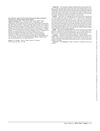 6 citations,
November 2018 in “Antimicrobial agents and chemotherapy (Print)”
6 citations,
November 2018 in “Antimicrobial agents and chemotherapy (Print)” Fluconazole can cause hair loss, but the exact cause is unknown.

Some medications, including retinoids, antifungals, and psychotropic drugs, can cause reversible hair loss if stopped or doses are reduced.
 December 2023 in “International journal of multidisciplinary research and analysis”
December 2023 in “International journal of multidisciplinary research and analysis” SH-MSCs gel can effectively treat alopecia by increasing IL-10 and decreasing TNF-α gene expression.
 1 citations,
January 2016 in “Open Forum Infectious Diseases”
1 citations,
January 2016 in “Open Forum Infectious Diseases” Retinoic acid is not linked to hair loss from fluconazole use.
 January 2019 in “Springer eBooks”
January 2019 in “Springer eBooks” Some chemicals and drugs can cause hair loss, which usually grows back after stopping the treatment.
 40 citations,
August 2006 in “Current Drug Safety”
40 citations,
August 2006 in “Current Drug Safety” Some drugs can cause hair loss, excessive growth, or color changes, often reversible but sometimes permanent.
 7 citations,
May 2014 in “Clinical practice”
7 citations,
May 2014 in “Clinical practice” Cooling the scalp may prevent hair loss from chemotherapy, hair often grows back after treatment, and nail issues usually improve after stopping the drug.
 6 citations,
March 2014 in “Annals of Pharmacotherapy”
6 citations,
March 2014 in “Annals of Pharmacotherapy” A woman's hair loss was probably caused by the antifungal drug anidulafungin.
 14 citations,
January 2013 in “Journal of Cutaneous Medicine and Surgery”
14 citations,
January 2013 in “Journal of Cutaneous Medicine and Surgery” Some cancer treatments can cause permanent hair loss.
 4 citations,
July 1996 in “Annals of Internal Medicine”
4 citations,
July 1996 in “Annals of Internal Medicine” High doses of fluconazole can cause reversible hair loss.
 July 1996 in “Annals of Internal Medicine”
July 1996 in “Annals of Internal Medicine” Taking high doses of fluconazole for a long time can cause reversible hair loss.
 July 1996 in “Annals of Internal Medicine”
July 1996 in “Annals of Internal Medicine” Long-term high-dose fluconazole can cause reversible hair loss.
 85 citations,
April 2007 in “Dermatologic Clinics”
85 citations,
April 2007 in “Dermatologic Clinics” Some drugs can cause hair loss, change hair color and shape, or increase hair growth, and treatment may involve stopping the drug or using specific hair growth treatments.
 7 citations,
January 2015 in “Current problems in dermatology”
7 citations,
January 2015 in “Current problems in dermatology” Hair loss can be caused by stress, infections, drugs, and various diseases, with treatment depending on accurate diagnosis.
 2 citations,
January 2019 in “Elsevier eBooks”
2 citations,
January 2019 in “Elsevier eBooks” Biotin supplements are unnecessary for most people but may help with certain conditions like biotin deficiency, brittle nails, and some hair loss.
 November 2015 in “Clin-Alert”
November 2015 in “Clin-Alert” Some medications and supplements can cause serious side effects, including hair loss, heart rhythm problems, liver injury, and other health issues.
 90 citations,
May 2019 in “Drugs”
90 citations,
May 2019 in “Drugs” Long-term use of azole antifungals can cause hair loss, hormonal imbalances, and severe skin reactions.
 2 citations,
April 2022 in “Cureus”
2 citations,
April 2022 in “Cureus” A healthy woman got a chest abscess from a fungal infection after gallbladder surgery, which was treated but caused temporary hair loss due to the antifungal medication.
 1 citations,
May 2016 in “Current Opinion in Pediatrics”
1 citations,
May 2016 in “Current Opinion in Pediatrics” Children's hair loss can be caused by various factors and should be treated with appropriate, age-specific methods and psychological support.
 January 2012 in “Postgraduate obstetrics & gynecology”
January 2012 in “Postgraduate obstetrics & gynecology” Up to 50% of women may experience significant hair loss by age 50, with various causes and treatments available.
 January 2012 in “Postgraduate obstetrics & gynecology”
January 2012 in “Postgraduate obstetrics & gynecology” Up to half of women by age 50 experience significant hair loss, with various types and treatments available.
 3 citations,
January 1996 in “Pharmacotherapy: The Journal of Human Pharmacology and Drug Therapy”
3 citations,
January 1996 in “Pharmacotherapy: The Journal of Human Pharmacology and Drug Therapy” Zidovudine may cause hair loss in advanced-stage HIV patients.
 April 2012 in “Informa Healthcare eBooks”
April 2012 in “Informa Healthcare eBooks” Telogen effluvium is a common hair loss condition where many hairs enter the resting phase, often not noticeable until significant loss occurs, and treatment focuses on the underlying cause.
 3 citations,
February 2008 in “Basic and clinical dermatology”
3 citations,
February 2008 in “Basic and clinical dermatology” Telogen Effluvium is a hair loss condition where treatment involves identifying and managing its triggers.
 39 citations,
January 2019 in “Journal of Dermatological Treatment”
39 citations,
January 2019 in “Journal of Dermatological Treatment” Ketoconazole cream is effective for skin conditions like seborrheic dermatitis and may help with hair loss and other skin issues, with generally mild side effects.
 January 2018 in “Springer eBooks”
January 2018 in “Springer eBooks” Terbinafine is the most effective medicine for fungal nail infections, especially for diabetics and those with weak immune systems.
1 citations,
November 2021 in “Ultrasonography” Ultrasound boosts finasteride's hair growth effects in mice.
 January 2024 in “Case Reports in Dermatological Medicine”
January 2024 in “Case Reports in Dermatological Medicine” Baricitinib may effectively treat nail changes in alopecia areata.
 13 citations,
July 1996 in “Annals of Internal Medicine”
13 citations,
July 1996 in “Annals of Internal Medicine” International medical graduates outperformed U.S. graduates on an internal medicine exam.
 13 citations,
July 1996 in “Annals of Internal Medicine”
13 citations,
July 1996 in “Annals of Internal Medicine” International medical graduates outperformed U.S. graduates on an internal medicine exam.





























